.jpg?width=5568&name=LSFirstDay2020-138%20(1).jpg)
The arrival of fall’s cooler breezes marks the start of the admissions season at private schools across the country. For many families, this is a time to begin thinking about the evolving educational needs of your child, and whether there is an option that would provide increased challenge, further breadth of experience, and ultimately an opportunity for your child to reach his or her potential. This is a big question for a family to undertake in a typical year—but during a global pandemic, there may be even more to navigate.
One of the most important steps parents can undertake in investigating private school is to visit a school’s campus. But with physical distancing and other safety measures in place, those visits may look different. Peck’s activity-based offerings and information sessions have been moved fully online. Parent meetings with the Admissions office, however, may take place over the phone, via Zoom, or in person. And we are pleased to offer in-person tours, though they are now after school hours for the safety of our students and faculty. Whether virtual or in person, each type of visit offers a distinct opportunity to assess the mission and culture of the school.
So, during these visits, what should you be looking for?
- Mission & Philosophy: Look beyond just “checking off boxes”—for instance, comparing schools’ acreage, placement statistics, number of buildings, etc. While this information is worth noting, each school’s program is special and unique, so take the time to really get to know the essence of a program and community. Identifying with a school’s mission statement is a good place to start, and the mission should align with priorities and values that you hold dear as a family.
- Academic Culture: School is a place where children should be intellectually stimulated, exposed to new opportunities, be comfortable taking risks, and feel a sense of importance, contribution, and value. But it should also be a place where they can have fun and where childhood is preserved for as long as possible. Look for a balance between academic rigor and joy in the curriculum—even when learning must shift to remote offerings.
- Expansive Academic Offerings: Students should be exposed to academic breadth during the school day, both in terms of traditional core subjects, as well as a range of visual and performing arts offerings, world language, technology and innovation, athletics, science and design, and library and research skills. If done correctly, families should not feel the need to over-schedule children in afterschool activities in order to supplement needs not met during the school day. The school should have on-staff experts in all of these areas, providing children with expansive offerings within the framework of the academic week.
- Character Development & Values: As important as academics are, school life also plays a critical role in each child’s social and emotional development, ultimately helping shape the person each child becomes. To that end, both the faculty and peer influences that surround your child each day are incredibly impactful. In searching for the right placement, you will want to ensure that your child is spending time with educators who model the type of ethics and comportment that are important to you as parents. A school’s program should value, promote, and support a kind, caring, and inclusive community. The school should teach, model, and uphold designated school values that are a part of a larger character education approach.
- A True Sense of Community: Families who happen to share the same school coalesce into a true school family. As a result, it’s important when exploring private school options that you understand the ways in which the school fosters and promotes a close-knit student and parent body. Additionally, it’s imperative that the school truly believes it is developing a partnership with the parents of each of its students. The school should have intentional forums established that allow both student and parent peers to connect, share, and collaborate for the betterment of the overall school community. Ask how the school maintained that sense of connection during mandated closures this year.
- Before & After Care Options: The life of a parent is incredibly busy and plans can change on a dime! Whether you expect that you will need extended care for your child every day or for the occasional circumstance when an appointment runs late, you should explore what type of before and after care programs the school offers. You will want to ensure that such programs provide you with the comfort that your child will always be taken care of, always cared for, and (if done right!) allows your child to explore creative passions that provide more “fun” than if they were to head home after school.
- Safety & Security: Families should feel comfortable that a school’s safety and security protocol is well established—now more than ever. In addition to schools regularly running the typical drills that prepare students and faculty for a variety of emergencies, it’s now important to consider their response to the pandemic, and the current health and safety protocols in place (such as required face coverings, daily health screenings, plexiglass barriers, and updated ventilation systems, among other things). To understand how the school prioritizes security, ask about such standard practices as authorized door access, video monitoring, and security personnel on campus.
Exploring the possibility of private school for your child should be an exciting and enlightening time, even when the world around us seems uncertain. But the way a school has responded to a global health crisis can itself give you important insight about its values and priorities as an institution. Even if the admissions process is altered due to COVID, the heart of that school will shine through.





